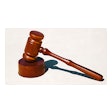Copyright 2017 News & Record (Greensboro, North Carolina)
All Rights Reserved
News & Record (Greensboro, North Carolina)
CHAPEL HILL — After three years of an NCAA investigation and three notices of allegations, the University of North Carolina at Chapel Hill will appear today before the NCAA Committee on Infractions in Nashville, Tenn. The hearing is expected to last until Thursday.
This is not an end point as much as it is a new beginning. In NCAA investigations involving serious allegations, as is the case at UNC, the appearance before the infractions committee is essentially an institution's trial date — its chance to go before the NCAA's judge and jury.
What happens during an infractions committee hearing?
There are, essentially, prosecutors (the NCAA Enforcement Staff), defendants (the charged institution, and any of its associates — current or former coaches or employees, etc.) and a judge and jury (the infractions committee).
During the hearing the enforcement staff and the institution — as well as any individuals who face allegations of wrongdoing — will have an opportunity to argue their positions relative to each of the allegations in the case. Members of the infractions committee will listen to both sides, and will have an opportunity to pose questions of their own.
How is an infractions committee hearing organized?
Gene Marsh and Tom Yeager, two former infractions committee chairmen, recently described the set-up like this: imagine a large conference room with three long, rectangular tables set up to form an open square. The members of the infractions committee will sit behind the table in the middle, leaving two tables running down opposite sides of the room.
NCAA officials, including those from the enforcement staff, will sit at one of those tables. The other will be occupied by the university and its team. In UNC's case, that will include chancellor Carol Folt, athletics director Bubba Cunningham and coaches Larry Fedora, Sylvia Hatchell and Roy Williams.
At the start of the hearing, there will be an introduction of all of the parties in the room. The university will give an opening statement. The enforcement staff will do the same. The enforcement staff will then introduce discussion of the first allegation, and the university will have a chance to respond.
Members of the infractions committee will have the chance to ask questions. Both the institution and the enforcement staff can make their case. Eventually, the proceedings will move on to the second allegation and the third. UNC is facing five allegations.
Who is on the infractions committee?
Seven NCAA Committee on Infractions members will hear UNC's case. Those seven members, and their affiliations:
- Greg Sankey (committee chairman), Commissioner of the Southeastern Conference
- Carol Cartwright, president emerita of Kent State and Bowling Green State universities
- Alberto Gonzalez, dean and professor of law at Belmont University College of Law
- Eleanor Myers, law professor emerita and interim associate dean for students at Temple University
- Joseph Novak, retired college football coach, Northern Illinois University
- Larry Parkinson, director of Office of Enforcement for Federal Energy Regulatory Commission
- Jill Pilgrim, attorney and co-founder of Precise Advisory Group in New York, N.Y.
What is the difference between the infractions committee and the enforcement staff?
They are separate organizations in the NCAA infractions process. Members of the enforcement staff are NCAA employees who are responsible for carrying out NCAA investigations and building cases. The enforcement staff, and its investigators, built the case against UNC.
Major NCAA infractions cases are then brought to the committee on infractions, which the NCAA describes as an "independent administrative body" charged with deciding these cases. The infractions committee is comprised, as the NCAA puts it, "of individuals serving as volunteers from NCAA member institutions and conferences and individuals from the general public who have legal training."
Is the hearing open to the public?
The hearing is not open to the public, which is standard NCAA protocol. Infractions committee hearings are held behind closed doors, usually in large meeting rooms connected to hotels. Hearings are often held in Indianapolis, where the NCAA has its headquarters. It is not uncommon, though, for a hearing to be held outside of Indianapolis.
Aside from listening and asking questions, what is the committee's role during the hearing?
In addition to listening to the representatives on both sides of the case, and asking questions, the infractions committee also has the authority to adjust the charges that an institution faces. If the committee, for instance, believes that the enforcement staff hasn't appropriately applied an NCAA bylaw to an allegation, then the committee can alter the charge.
In UNC's case, this is noteworthy because the institution does not face any allegations of academic fraud, or academic misconduct, related to a case that, at its core, is about how years of bogus African Studies courses helped maintain athletic eligibility. The enforcement staff has instead framed this as an impermissible benefits case. The committee on infractions could potentially change that.
How likely is that, and what would happen if the committee does add additional charges?
It's probably unlikely. After years of delays, Greg Sankey, the chairman of the committee, has expressed a desire for this case to reach a timely conclusion. The university would welcome the end of this saga, as well.
If the committee does add new allegations, though, it would only extend a case that has now dragged on into its fourth year. A new charge, or new charges, also could potentially reset the case timeline, and add several months, at least, to the back end of the case.
Why are Larry Fedora, Sylvia Hatchell and Roy Williams appearing before the committee?
The short answer: Their appearance was requested. Why the committee requested their appearance, though, isn't exactly clear. No UNC coach has been charged with wrongdoing. Fedora, the football coach, began working at UNC in 2012, after the conclusion of the classes at the heart of the investigation.
To varying degrees, football, men's basketball and women's basketball have appeared at the greatest risk throughout the investigation. Though no sport has been charged with wrongdoing, the NCAA alleged that UNC used the bogus African Studies courses to maintain the eligibility of academically at-risk athletes, "particularly in the sports of football and men's basketball."
Fedora and Williams will be on hand, presumably, to address questions relating to their teams' use of the courses in question. Hatchell, the women's basketball coach, might also be asked about her team's relationship with Jan Boxill, a former women's basketball academic counselor who is charged with providing impermissible academic assistance to players.
Though football and basketball players accounted for the majority of enrollments in the bogus classes, athletes from several other sports, including baseball and women's soccer, also took them. The committee only requested the presence of those three UNC coaches.
To what extent, if any, will possible penalties be discussed?
Penalties will be discussed. By the time the hearing ends on Thursday, UNC officials might have a good idea of what potential sanctions they face. The university will not know for sure - and it won't know until the committee issues its final ruling - but the committee does have the latitude to discuss potential sanctions, and potential mitigating factors, during the hearing.
What happens next?
More waiting. Nothing has moved quickly in the case and don't expect that to change, even approaching the end. If the committee adds or adjusts charges, that would create another procedural delay in a case that has already had several of them.
And even if the committee accepts the enforcement staff's case — which is the far more likely outcome of the hearing — several months could pass before it issues a final ruling, which would include penalties and sanctions.
There is a built-in NCAA appeals process.
If UNC disagrees with the outcome of the case — if it finds its penalties to be too harsh, for instance — it could, and likely would, appeal the committee's ruling.
If UNC takes additional measures, like pursuing a legal case, it's likely to do so only after exhausting the normal NCAA investigative process.
Read More of Today's AB Headlines
Subscribe to Our Daily E-Newsletter
Terms and Conditions Privacy Policy































